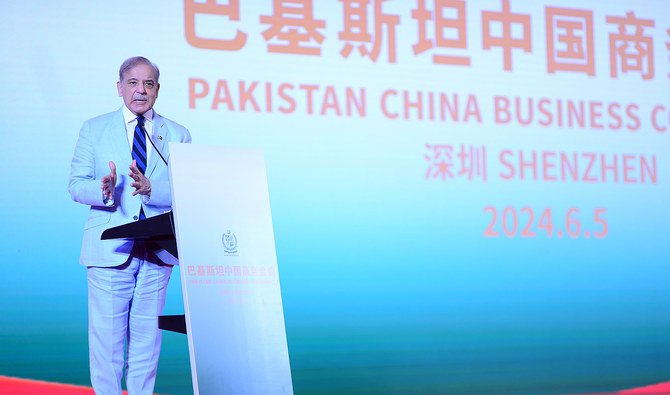Thirty-two Memoranda of Understanding (MoUs) were signed between Pakistani traders and Chinese business people in various sectors during the Pakistan Business Conference held in Shenzhen. This conference helped facilitate business-to-business meetings of private sectors between Pakistan and China.
A deal was made when Prime Minister Shehbaz Sharif came to China, this deal is with Huawei. Involving this agreement, the Chinese will train 200,000 Pakistani children in artificial intelligence for free. The federal government’s Business-to-Business initiative signed the MoUs, according to a statement from the Ministry of Commerce on Wednesday. Electronics and household appliances, information and communication technology (ICT), textiles, leather and footwear, mineral resources, as well as pharmaceuticals are among other areas covered by these agreements.
According to the statement, four MoUs were signed between the private sectors of Pakistan and China in the energy sector, two in the automobile sector. one in cultural cooperation, and four inked for information communication technology (ICT). Besides this, six MoUs were signed in the pharmaceuticals and healthcare sector, four in logistics, while ten more were agreed upon for agriculture & food processing. A Letter of Intent was also signed for the optical fiber network sector.
The Business Conference Shenzhen 2024 is expected to pave the way for introducing Pakistani products into regional markets. Which would also positively impact Pakistan’s economic strategies as well as regional business relations. During the visit, Federal Investment Board Minister Abdul Aleem Khan. Along with the Minister of Commerce, I met heads of Chinese companies who expressed interest in investing in different sectors within Pakistan. Abdul Aleem Khan emphasized the government’s role being a facilitator. Where it gives full freedom to the private sector regarding investment activities.
PM Sharif Visits Huawei, Signs IT Pact
Prime Minister Shehbaz Sharif also visited Huawei Headquarters Shenzhen – A Digital Technology Company from China. Where he inked a Framework Agreement with IT Ministry officials whereby Huawei has committed to training 200 thousand Pakistani Youths, especially AI, among other IT Fields besides assuring support towards Safe City Projects Establishment, E-governance and Pakistan’s digitization. The chairman of Huawei expressed deep interest in investing in various sectors in Pakistan. Prime Minister Sharif invited Huawei to expand its investment in Pakistan and priorities safe city projects in different cities.
Talking at the Pakistan-China Business Conference in Shenzhen, State Head Shehbaz Sharif applauded China’s rapid development. He said that Pakistani companies should learn from the Chinese way so as to present their products globally more effectively. He assured full government cooperation while highlighting structural reforms being taken up by his administration. Coupled with anti-corruption measures currently underway within our system. The PM reiterated their commitment to turning Pakistan into a Welfare State envisioned by Quaid-e-Azam Muhammad Ali Jinnah.
PM Sharif Strengthens CPEC in China Visit
Prime Minister Shehbaz Sharif’s Chinese visit was undoubtedly a serious area of strength. as he assured of carrying the China-Pakistan Economic Corridor to a higher level. Making new possibilities for territorial development and government assistance. President XI Jinping met him in Beijing, and they examined approaches to improving reciprocal relations in various areas. Which prompted the marking of different MoUs.
Shehbaz Sharif, the Prime Minister, thanked Xi Jinping and China’s government for backing them when things were tough. He said that the new CPEC will bring more light to tomorrow by prioritizing industrialization, agriculture, and information technology. And mining is its main sector of focus. The Special Investment Facilitation Council (SIFC) has been set up with a view of making business transactions easier and removing obstacles, among others. It also works towards improving relations between central government bodies along provinces so as to foster foreign investments in areas like energy. IT or even mining among others.


